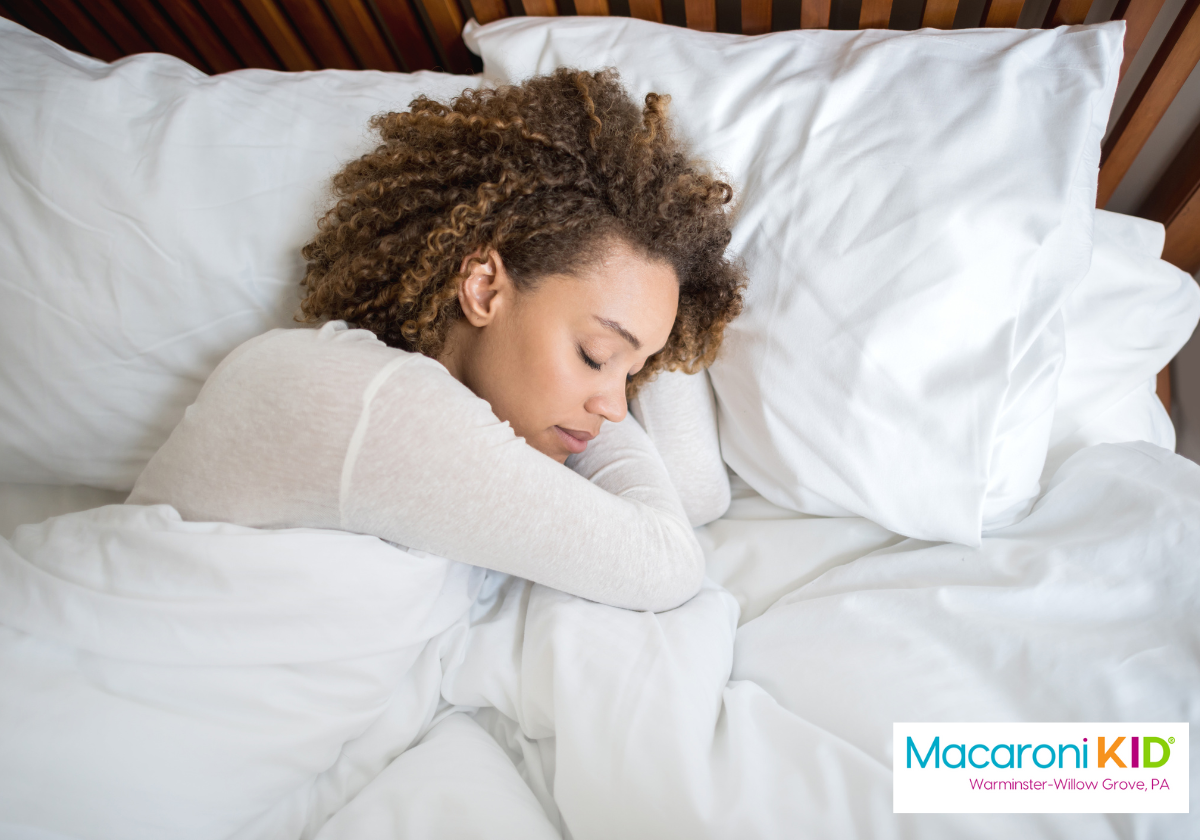I don't know about you, but this week has been ROUGH with adjustments to sleep and schedules since Daylight Savings Time ended! I knew it was coming and yet, the struggle has been REAL this week. My kids were up late most nights, I was staying awake until late, and we all struggled getting up each morning! Thankfully our schedule allows for significant flexibility, but I need to restore some semblance of order in the midst of motherhood, homeschooling, and chasing after my non-stop toddler! The older I get, the more I realize how much sleep impacts so many other facets of life. Try out some of these tips we're going to implement in the coming weeks to help the whole family get better sleep:
 |
1. Promote Physical Activity During the Day
- For kids and adults: Engaging in physical activities during the day (like playing outside or going for walks) helps to release energy and makes it easier to fall asleep at night.
2. Watch Diet and Caffeine Intake
- For kids: Avoid heavy meals, sugary snacks, and drinks close to bedtime. Offer calming, light snacks like warm milk or a banana if they're hungry.
- For adults: Avoid caffeine, alcohol, and large meals close to bedtime.
3. Create a Consistent Sleep Schedule
- For kids: Set a regular bedtime and wake-up time for children, even on weekends, to regulate their internal clock.
- For adults: Stick to a consistent sleep schedule as well. Adults need 7-9 hours of sleep, and having a set time to go to bed and wake up helps regulate your circadian rhythm.
4. Limit Screen Time Before Bed
- For kids & adults: Did you know that the blue light emitted by phones, tablets, and TV screens can interfere with melatonin production? Try to avoid screens at least 30-60 minutes before bedtime.
5. Keep Bedroom Use for Sleep
- For kids & adults: This helps reinforce the connection between the bedroom and sleep, making it easier to wind down at night.
6. Establish a Calming Bedtime Routine
- For kids: Incorporate activities like reading stories, taking a warm bath, or gentle stretching. Avoid screen time an hour before bed.
- For adults: Have a relaxing bedtime routine like reading, meditation, or listening to calming music to unwind before sleep.
7. Teach Relaxation Techniques
- For kids: Introduce breathing exercises, visualization, or even mindfulness games to help them wind down before bed.
- For adults: Meditation, deep breathing, or progressive muscle relaxation can ease stress and prepare your body for sleep.
8. Manage Night Wakings for Kids
- For younger children, try gradually easing them out of the habit of needing you to fall back asleep. Offer comfort but reduce dependency on your presence, if possible. If you live in a noisy area or have multiple children, a white noise machine can help mask disruptive sounds, promoting better sleep for everyone.

It's helpful to remember that any new habit takes time to form, so consistency is key! Stay patient and calm, especially if you or kids resist a new sleep routine. It might take a few weeks to adjust. By setting routines, creating a peaceful environment, and limiting distractions, we should be on track to improve our sleep and wake up feeling refreshed!
Stay in the loop on articles like this one, family-friendly events, and more in our area.
Subscribe now, and never miss out on the fun!
Chat GPT helped with the tips in this article.



